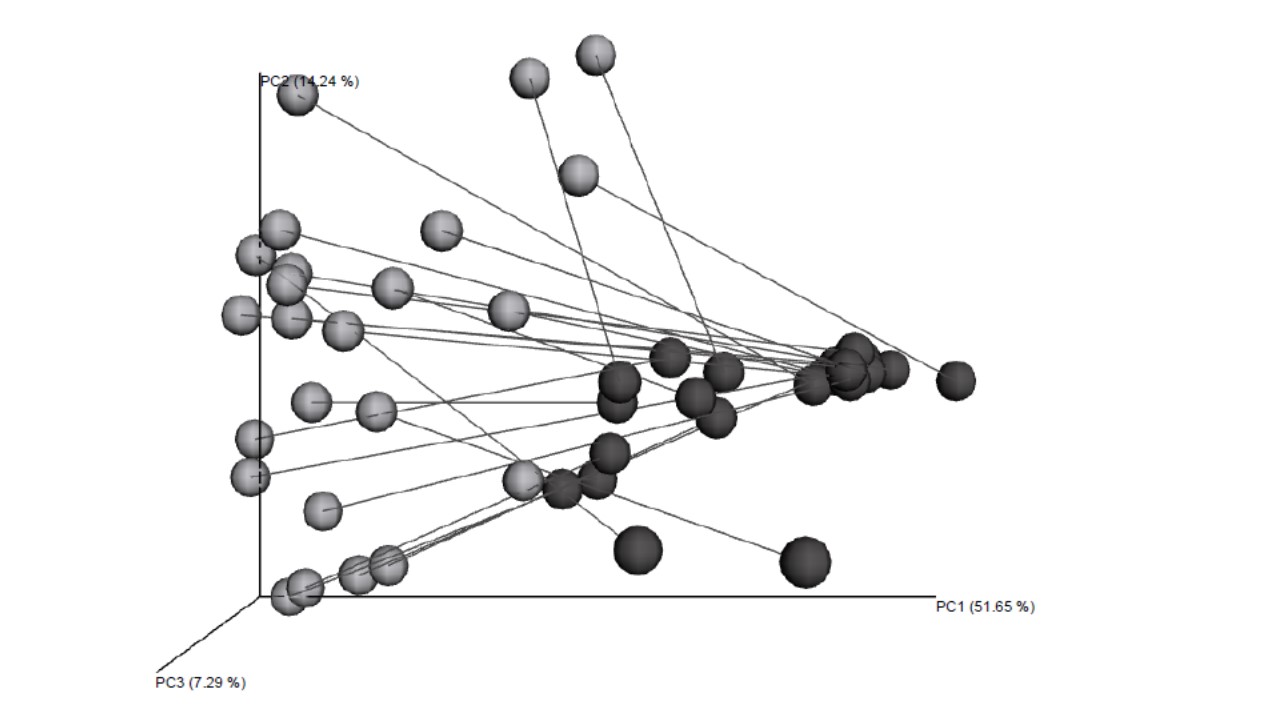Session Information
Session Type: ACR Poster Session C
Session Time: 9:00AM-11:00AM
Background/Purpose: Studies have identified abnormalities in the microbiota of patients with arthritis. To evaluate the pathogenicity of human microbiota, we performed fecal microbial transplantation (FMT) from children with newly diagnosed enthesitis-related arthritis (ERA) and sex- and age-matched controls to germ-free KRN/B6xNOD (K/BxN) mice, a spontaneous arthritis model dependent upon an intact microbiota.
Methods: K/BxN mice were maintained under germ-free (GF) conditions and were gavaged with feces previously collected from children with ERA and healthy controls at 6 – 10 weeks of age, and maintained in isolators for 21 – 24 days following FMT. Additional controls included non-gavaged GF mice and mice transferred from the gnotobiotic to the conventional facility. Sequencing of the fecal microbiota was performed on the Illumina MiSeq device, and analysis was performed with the Quantitative Insight into Microbial Ecology program.
Results: 24 mice were gavaged with human microbiota (12 each of ERA and controls). 23 non-gavaged mice were maintained in the gnotobiotic facility, and 11 additional non-gavaged mice were transferred into the conventional facility. Among transplanted mice, ankle swelling assessed 21 – 24 days post transfer was equivalent in those that received ERA (4.7 ± 0.5) vs control (4.4 ± 0.4) microbiota. Taken together, humanized mice had increased ankle swelling as compared to GF (3.5 ± 0.3, p < 0.001) and conventionally housed (4.0 ± 0.4, p = 0.002) mice. Principal coordinates analysis revealed incomplete uptake of the human microbiota, with clustering by species but not by donor-recipient dyad (Figure 1.) This was due to substantial over-representation of two genera (Bacteroides and Akkermansia) at the expense of the Firmicutes phylum among the transplanted mice. Taken together, the microbiota as a whole predicted the extent of ankle swelling (R2 = 0.185, p = 0.018, adonis test). At the level of the individual genera, the abundances of Bacteroides (r = -0.510, p = 0.010) inversely and Akkermansia (r = 0.367, p = 0.078) directly correlated with ankle swelling.
Conclusion: Perhaps due to incomplete humanization, there was no association between the diagnosis of the donor and extent of arthritis in the recipient mice. However, our study supports previous findings of a possible association between Akkermansia muciniphila and arthritis and opens up new avenues of research into the association between human microbiota and arthritis.
To cite this abstract in AMA style:
Stoll ML, Weiss PF, Weiss JE, Cron RQ, Elson CO, Morrow CD, Lefkowitz EJ, Schoeb TR. Human Gut Microbial Species Correlate with Arthritis in the K/BxN Mouse Model [abstract]. Arthritis Rheumatol. 2016; 68 (suppl 10). https://acrabstracts.org/abstract/human-gut-microbial-species-correlate-with-arthritis-in-the-kbxn-mouse-model/. Accessed .« Back to 2016 ACR/ARHP Annual Meeting
ACR Meeting Abstracts - https://acrabstracts.org/abstract/human-gut-microbial-species-correlate-with-arthritis-in-the-kbxn-mouse-model/

